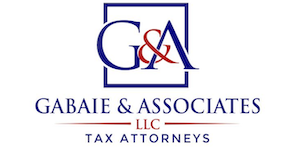When your business has employees, it also has the responsibility to withhold federal and state taxes from employee paychecks and employees’ Medicare and Social Security contributions. These payroll tax liabilities are known as “trust fund” taxes because the employer holds them in trust before sending them to the U.S. Internal Revenue Service (IRS) and state tax authorities.
However, if an employer fails to make these payments to the appropriate agencies, the business, and even its officers, can face steep penalties from the IRS in a Trust Fund Recovery Penalty (TFRP). If the IRS believes that your business owes payroll taxes, the IRS will typically appoint a Revenue Officer to your case. The RO will have the authority to investigate the payroll taxes they believe are missing, impose civil liabilities, and refer your case for criminal investigation.
Penalties for Failing to Submit Payroll Tax
If you fail to submit payroll taxes, the business owners can be personally liable for the unpaid amount of tax liability, which is the Trust Fund Recovery Penalty. The TFRP includes the amount of any taxes your business failed to pay, including Medicare and Social Security contributions, plus interest. The tax liability and TFRP can add up to a significant amount for multiple employees.
The IRS can hold anyone responsible for submitting payroll taxes personally liable for taxes not submitted. Responsible people can include a business owner, the CEO, corporate officers, directors, and employees responsible for payroll. The IRS can also hold third-party payroll administrators, bookkeepers, and outside accountants responsible. To cover the penalty, the IRS can go after the personal assets of anyone responsible for withholding taxes or anyone who knows they aren’t being paid.
Statutes of Limitations
The IRS’s ability to come after your business and the officers of your business for failing to submit payroll taxes isn’t unlimited. The statutes of limitations prevent the government from holding you liable for eternity. The IRS must assess the TFRP within three years after your business files form 941 or 944. After that three-year statute of limitations, the IRS can’t assess a personal penalty against individuals. But if your business never filed the form, the IRS could continue to assess the penalty beyond the three-year limitation period. The business’s liability for the unpaid payroll taxes themselves won’t expire for ten years.
An Experienced Tax Attorney Can Help
When the IRS initiates a payroll audit against your business, they’ll request documents and information, including who is responsible for submitting payroll taxes, who controls the money, and who has access to business bank accounts or PINs. They’ll also ask for bank statements and canceled checks, and other documentation from your business.
If the IRS is investigating your business for unpaid payroll taxes or if they’ve sent an assessment, you need experienced legal tax guidance immediately. We represent clients across the U.S. in actions before the IRS and state tax agencies, and we can help negotiate with the IRS. Give Gbaie & Associates, LLC a call at 410-358-1300 or contact us online for a free consultation.

